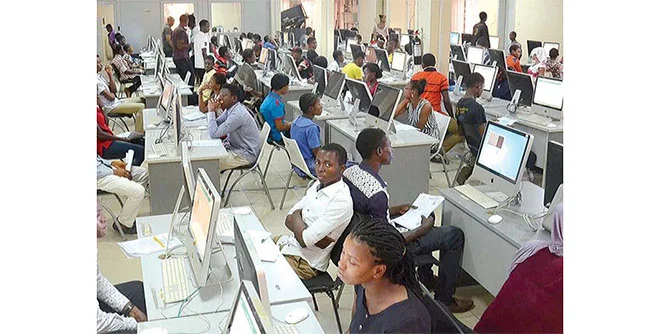The recent announcement by the Joint Admissions and Matriculation Board (JAMB) fixing the minimum cut-off scores for the 2024/2025 admission cycle has sparked a flurry of reactions from educationists, students, parents, and stakeholders across Nigeria.
At the JAMB 2025 Policy Meeting held on Tuesday in Abuja, the Board, in collaboration with heads of tertiary institutions, set 150 as the minimum cut-off mark for admission into Nigerian universities, 100 for polytechnics and colleges of education, and 140 for colleges of nursing sciences.
While the decision aligns with previous years in terms of allowing institutions to determine their own final thresholds above the national minimum, critics argue that the bar has been set too low, thereby raising concerns about quality, merit, and the future of higher education in the country.
JAMB Registrar, Prof. Ishaq Oloyede, had explain that the decision was reached through consensus and reflects the current state of Nigeria’s education sector.
He reiterated that while the cut-off marks represent the minimum admissible scores, each institution reserves the right to raise their own benchmark depending on their program competitiveness.
“This policy reflects the reality of our education system and the need to align admission processes with merit, equity, and institutional capacity. No institution is allowed to admit candidates below the minimum benchmark. However, they are free to set higher cut-offs as deemed appropriate.”
He also noted that JAMB’s primary role is to serve as a ranking and admission regulation agency, ensuring equity and transparency in the admission process.
Also speaking at the meeting, the Minister of Education, Dr Maruf Alausa, urged institutions to balance access with quality.
“We must ensure that no child is denied access to education on account of socioeconomic background, while also safeguarding the integrity of our tertiary institutions. Institutional autonomy must operate within national standards.”
However, the new cut-off marks have elicited mixed reactions from different quarters. Many experts and educationists fear that the low thresholds might further erode academic standards.
An education policy analyst based in Abuja, Isaac Moji expressed disappointment over the move, saying that the scores are too low for tertiary education students seeking admission.
“Setting 150 out of 400 for university admission is just 37.5%. It’s barely a pass. It sends the wrong message about excellence and merit. We are telling young people that mediocrity is acceptable, and in the long run, this will hurt our labour market, our innovation ecosystem, and even our global competitiveness,” he said.
Moji further said rather than lowering the bar, the government should invest more in improving secondary school education and ensuring that students are better prepared to meet higher standards.
Also speaking, a parent, Theresa Chri, whose son wrote JAMB this year, seeking admission at University of Abuja, argued that the cut-off score policy is not new, but it continues to create confusion and disillusionment in the system.
“Universities are already overwhelmed. The admission rush should be managed by capacity building, not by relaxing standards. A 150 score is not good enough for university-level rigor.”
Meanwhile, some stakeholders believe the move is progressive and inclusive, especially in addressing access challenges for students from rural and underserved communities.
One of the students, who secured Law admission this after two years of waiting, said many students from disadvantaged regions struggle with poor facilities, unqualified teachers, and lack of access to digital resources and fixing high scores will put them in a tight corner.
“We need to be honest with ourselves. Not everyone can score 200 or 250, and yet that doesn’t mean they don’t deserve a shot at higher education. The cut-off is not a pass-fail score, it is a threshold for further assessment. Institutions still have post-UTME and other criteria for screening.”
Gilbert, a 22-year-old UTME candidate from Benue, who scored 170, expressed relief. “I was really worried that I wouldn’t make it. But with this new cut-off, I can apply to some state universities,” he said.





